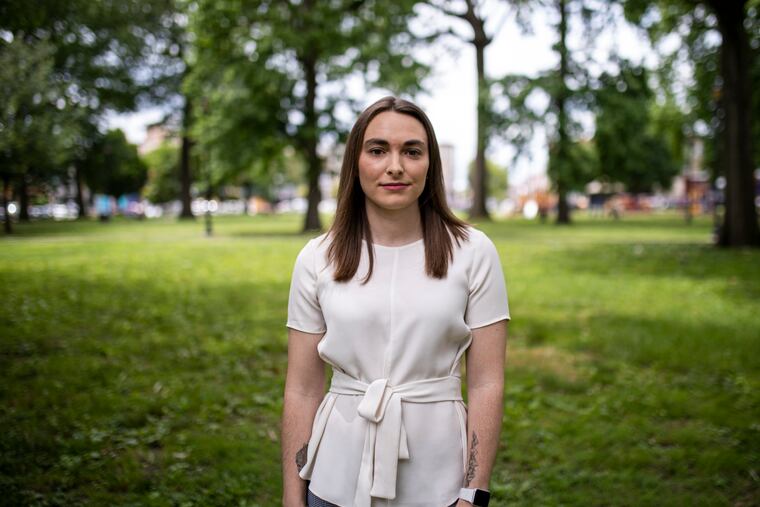The role of mental health in gun violence isn’t simple, and there is no quick fix
Each person’s mental health needs are unique, so one size does not fit all. Yet that's how we legislate and educate and medicate.

A few years ago, while working as an EMT in Plymouth Meeting, I got a call for a mental health crisis that I still remember.
Police arrived first. We were told the patient had a weapon so we weren’t allowed into the home. I eventually pushed past them and found the patient, a 16-year-old Black boy, clutching his weapon — a book.
The boy’s mother said that her son hadn’t been taking his psychiatric medicine, but she was at her rope’s end working multiple jobs and couldn’t offer the care he needed. We took him to the hospital for an assessment and to get medication. I sat in the back of the ambulance, and he and I talked; we created a plan for the next time he felt like no one was on his side (he would go talk to his grandpa).
I hugged him goodbye, and he told me he wished he always had someone like me to talk to. But all I did was listen and try to come up with a plan that worked for him.
I think about that call a lot, as each new episode of gun violence — this time, the mass shooting in Highland Park, Ill., and the shots fired on the Benjamin Franklin Parkway on July Fourth — renews calls to examine our nation’s mental health crisis. I never stop wondering what might have happened if I hadn’t pushed past the police that night to get to that boy, so I could discover that he didn’t, in fact, have a weapon.
The recently passed bipartisan gun violence bill leans heavily into funding mental health services but is very light on recognizing that there is not one single mental health care crisis — each person’s mental health needs are unique, and there are thousands, if not millions, of people in need of individualized care. One size does not fit all, yet that’s how we legislate and educate and medicate.
» READ MORE: Do mental health provisions belong in the Senate’s bipartisan gun safety deal?
By adding mental health investments to gun violence prevention measures, the bill also creates a false correlation between mental health and violent tendencies, rather than setting the expectation that millions will simply get the care — often long term — they need and deserve.
I’ve personally experienced the expectation that there is a quick and easy “cure” for mental health crises.
A few years ago, my former partner began threatening to stalk me if we ever broke up. With the help of Congreso, a Kensington nonprofit that helps residents in largely Latino neighborhoods, I moved out of the house we’d bought together into my own apartment and was diagnosed with post-traumatic stress disorder (PTSD). I was working in clinical research at the time and did not have enough sick days to take off, so I kept working while receiving treatment.
I wasn’t my usual self. Many of my colleagues would startle me just by walking up to me (a common symptom of PTSD), and my jumpiness made them jump. I would have nightmares and difficulty sleeping, so I was tired at work. I also had difficulty focusing and was fighting through a lot of brain fog. Once a week, I took an extended lunch to see my therapist. I was denied a request to work from home once a week, to be close to my emotional support dog, Rocky.
“I’ve personally experienced the expectation that there is a quick and easy ‘cure’ for mental health crises.”
My team lead, frustrated with my treatment schedule and accommodation requests, asked me, “When do you think you will get better?”
When it comes to mental health, people want a quick, easy fix, and when they don’t get it, they get frustrated (like my former employer) or just give up.
What if one of the millions of people who receive mental health care under the new gun violence bill becomes a mass shooter? Critics will again falsely link mental health to violence, saying pouring more money into mental health and early intervention is a waste, and that it isn’t “curing” people.
The goal of increased funding for mental health care must center on catching more people in need of care who are slipping through the cracks. More funding is good, but only if it comes with realistic expectations that do not put the onus on the sick to get better, and recognizes that different people need different treatment that is tailored to them.
Mental health care isn’t the “cure” for mass shootings, but it is a step in the right direction for a healthier America.
Alexandra Hunt is a public health researcher who recently campaigned to represent Pennsylvania’s 3rd Congressional District in U.S. Congress.